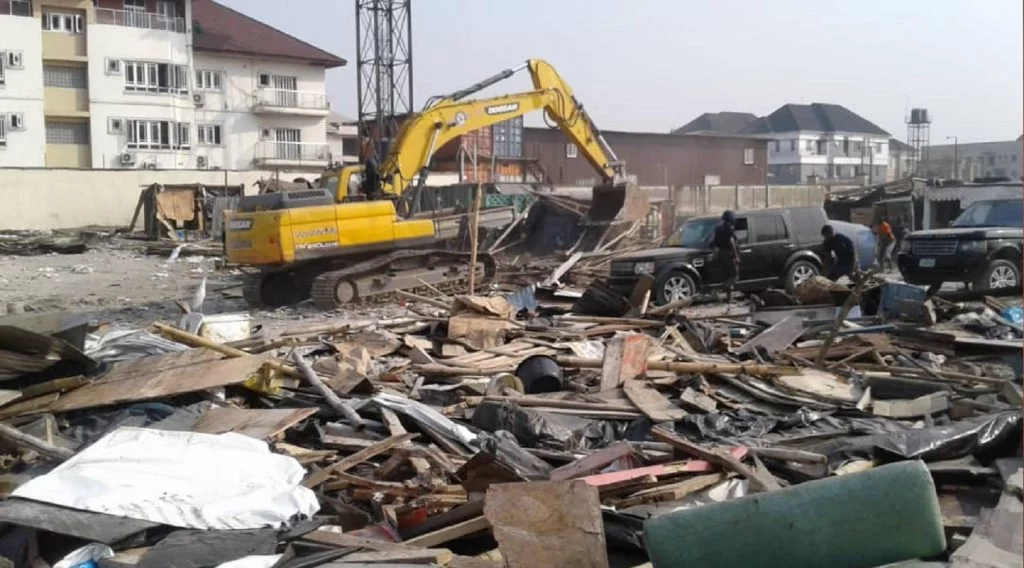By Editorial Board
Expectedly, demolition of landed properties by governments all over the country has continued to elicit passion and often controversies largely because people are thrown into serious physical dislocation when forcefully evicted from their places of abode or businesses without immediate alternative settlements. Quite often, both governments and citizens have been guilty of negative acts that lead to demolition but government has an onerous task to prevent or reduce the hardship of the people. This they can achieve through timely warning against erection of buildings in unauthorised locations and facilitating the erections of buildings within government regulations.
Borno State has perhaps witnessed more of the terrors of the Boko Haram insurgent group since the death of its founder Mohammed Yusuf in 2009 and did receive international attention with the kidnap of the Chibok school girls in 2014. It is easily the most affected by conflict related displacements in the north east and, according to the International Organisation for Migration (IOM), 17,053 babies were given birth to by Internally Displaced Persons in 18 locations in Borno State alone between 2019 to May 2021.
Certainly, the time is inappropriate for any group to stoke the ambers of religious conflict which is capable of further escalating the violence, tension and general insecurity in the State and the north east region at large. This is why the state government should strive hard to avoid the kind of controversy surrounding the demolition of EYN Church in Maiduguri by the Borno State Geographic Information System (BOGIS). Government should rethink its approach to the enforcement of town planning regulations both to ease the pains of those affected and to avoid a religious altercation.
The shooting at the Moduganari church during a demolition exercise by BOGIS which led to the death of 20-year-old Ezekiel Tumba and left five others injured has fuelled speculations from various religious affiliations. While the Borno State Chapter of the Christian Association of Nigeria (CAN) accused government of allegedly working against churches, four of which were demolished in the last two years, the Muslim Rights Concern (MURIC), an Islamic group, had also pointed out that under Governor Babagana Zulum 11 mosques had been demolished over the last two years for alleged overriding public interest and violation of purpose of allocation.
The government should conduct thorough investigation of the incident while those found culpable should be duly sanctioned, to further assure the people of its commitment to their security and welfare.
However, Nigerians should realise that town planning regulations are for the utmost benefit of the generality of the public and must be observed, as most Nigerians are fond of circumventing proper procedures for obtaining permits for their property developments and the resultant effect is the perennial flooding experienced in areas where properties have been developed along waterways, traffic congestions and collapse of buildings due to poor designs. And where property owners believe they have a legitimate claim against the government, they should approach a court of law to seek redress rather than resorting to self-help by physically assaulting law enforcement authorities.
Government should equally ensure that actions taken towards the enforcement of statutory regulations are within the ambits of the law. Nigerians have witnessed the arbitral demolition of properties by government authorities or persons with selfish interest acting through the instrumentality of state apparatus, without recourse to the issuance of requisite notices, obtaining a valid court order or award of compensation to affected persons.
Government is an institution with whom the people have entrusted the responsibility to ensure the preservation of law and order; its agencies and or officers should therefore not be in the forefront of statutory offenders. The government should do more to simplify the process of obtaining requisite licences and permits, particularly in the area of eliminating bureaucratic bottlenecks and corrupt practices by regulatory officers seeking to extort innocent members of the public. A reduction of applicable rates should also be considered, as it is quite sad to see that those entrusted with the governance and or management of Nigerians’ common patrimony are clueless about best ways of driving the generation; so they are quick to burden the people with an increase in rates and other means of taxation. A government that has failed in its responsibility to provide adequate housing for its citizens should not be so quick to charge exorbitant rates; it should rather find more creative means of increasing state revenues to meet its developmental demands. The primary responsibility of the government is the welfare and security of its citizens and there is everything wrong with a system that appears to strangulate the common class which constitute the vast majority of its citizenry.

